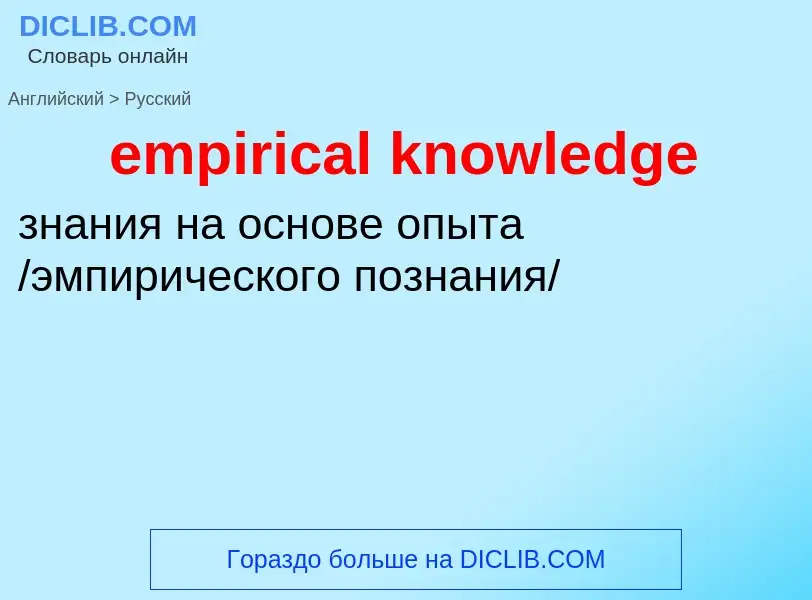Vertaling en analyse van woorden door kunstmatige intelligentie ChatGPT
Op deze pagina kunt u een gedetailleerde analyse krijgen van een woord of zin, geproduceerd met behulp van de beste kunstmatige intelligentietechnologie tot nu toe:
- hoe het woord wordt gebruikt
- gebruiksfrequentie
- het wordt vaker gebruikt in mondelinge of schriftelijke toespraken
- opties voor woordvertaling
- Gebruiksvoorbeelden (meerdere zinnen met vertaling)
- etymologie
empirical knowledge - vertaling naar russisch
математика
эмпирические данные
эмпирический результат
Definitie
Wikipedia
Empirical evidence for a proposition is evidence, i.e. what supports or counters this proposition, that is constituted by or accessible to sense experience or experimental procedure. Empirical evidence is of central importance to the sciences and plays a role in various other fields, like epistemology and law.
There is no general agreement on how the terms evidence and empirical are to be defined. Often different fields work with quite different conceptions. In epistemology, evidence is what justifies beliefs or what determines whether holding a certain belief is rational. This is only possible if the evidence is possessed by the person, which has prompted various epistemologists to conceive evidence as private mental states like experiences or other beliefs. In philosophy of science, on the other hand, evidence is understood as that which confirms or disconfirms scientific hypotheses and arbitrates between competing theories. For this role, it is important that evidence is public and uncontroversial, like observable physical objects or events and unlike private mental states, so that evidence may foster scientific consensus. The term empirical comes from Greek ἐμπειρία empeiría, i.e. 'experience'. In this context, it is usually understood as what is observable, in contrast to unobservable or theoretical objects. It is generally accepted that unaided perception constitutes observation, but it is disputed to what extent objects accessible only to aided perception, like bacteria seen through a microscope or positrons detected in a cloud chamber, should be regarded as observable.
Empirical evidence is essential to a posteriori knowledge or empirical knowledge, knowledge whose justification or falsification depends on experience or experiment. A priori knowledge, on the other hand, is seen either as innate or as justified by rational intuition and therefore as not dependent on empirical evidence. Rationalism fully accepts that there is knowledge a priori, which is either outright rejected by empiricism or accepted only in a restricted way as knowledge of relations between our concepts but not as pertaining to the external world.
Scientific evidence is closely related to empirical evidence but not all forms of empirical evidence meet the standards dictated by scientific methods. Sources of empirical evidence are sometimes divided into observation and experimentation, the difference being that only experimentation involves manipulation or intervention: phenomena are actively created instead of being passively observed.

